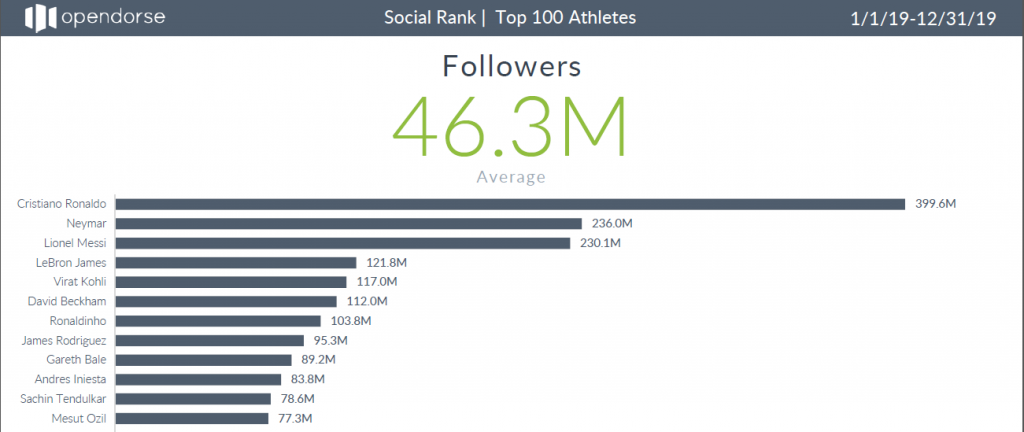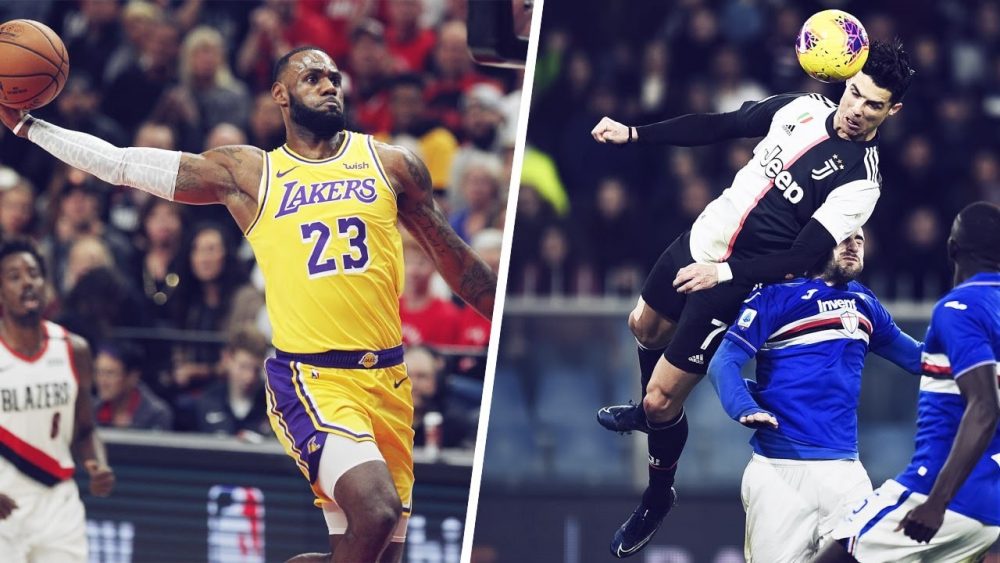Fifty years ago, when Pelé won his third World Cup, he was not just a sportsman (or an athlete), he was a star, a legend. In the next fifty years, athletes have gone ahead and become stars, celebrities, influencers and now brands. Every sport, in the last decade or two, has seen these athletes who are much more than just athletes. They are what we call ‘personal brands’ or ‘human brands‘, a concept Matthew Thompson has discussed in detail in his paper published in 2006. In sports, human brands or in this case athlete brands started with the likes of Michael Jordan, David Beckham, Tiger Woods among others.
The internet and social media have been one of the most crucial factors in this transition of athletes from stars to influencers and now to brands. And what do I mean by brand here? Let me give you an example, Kobe Bryant or as he was fondly called ‘The Black Mamba’ started building his brand when he first started endorsing Nike in 2003. The deal with Nike kept growing as did his performance on the court. In 2017, along with Nike, Kobe created a youth basketball league called the ‘Mamba League’ and followed it up with a Mamba Sports Academy. Nike’s Mamba Day celebration to the ‘Mamba out’ T-shirts on his website after his final game are examples of how big a brand ‘Black Mamba’ was. And it didn’t stop there either. Bryant Stiebel, a VC firm co-founded by Kobe which now has over $2 billion in assets, with investments in over dozens of technology, media and data companies. Bryant’s reputation as a star athlete and brand builder has been one of the portfolio’s keys to success. This speaks in volume about the brand Kobe ‘Black Mamba’ Bryant had become.
Similarly, David Beckham, although last played competitive football in 2013, is still very much a very prominent ‘athlete brand’. The fact that the phrase ‘Bend it like Beckham’ is renowned worldwide is in itself proof how big a global brand Beckham is. And now with the new MLS team he owns, InterMiami FC, the brand will only grow. Another example that I would want to talk about is Virat Kohli, the Indian Cricket Captain. Virat right now is the 5th most followed athlete on social media. As per Forbes, the world’s highest-paid cricketer’s brand value is at $14.5 million, which is higher than that of football icon Lionel Messi, golf superstar Rory McIlroy and Golden State Warriors’ Stephen Curry. Virat endorses over 17 brands, 2 of which he co-owns. He was the co-owner of an ISL franchise, FC Goa and also has a children’s show based on him called ‘Super V’ which was launched on his birthday.

Then there are two athletes whom I want to discuss in detail, they are the whole reason I am writing this article, and they are the athletes who I think have become bigger brands than their teams and/or their sport – Lebron James and Cristiano Ronaldo
The power of the brand Lebron James can be understood just by reading about the growth of Blaze Pizza, a company that James has invested in. Moreover, Lebron James made more money from endorsements ($52 million) than from playing basketball ($35.6 million) last year. He also has a combined 121.8 million social media followers, 18 million more than his employer, the NBA.
Talking of social media, how can we not talk about CR7? Cristiano Ronaldo, the most followed account on Instagram and the most followed athlete across all social media, has been a pathbreaker in sports marketing, athlete brand and player endorsement altogether. CR7 deserves a separate blog article for himself to understand and learn from his brand. But to give you a perspective, he has more Instagram followers than all the teams he has played for combined. He is truly a global brand. And definitely a brand much bigger than any of the teams or leagues he has played for.
With the internet and social media influencing our lives beyond leaps and bounds, athletes have become an unstoppable influence in our consumption habits and our overall lives. And this ability has turned them into global brands. Right now, athletes may not be bigger than their teams in all aspects, and neither are all athletes going to be bigger brands than the teams. But as we go forward, we will have more and more athlete brands competing and overtaking sports entities like teams and leagues to become an independent driving force in the sports marketing ecosystem.
I would like to know your thoughts about this. What do you think, will players ever become bigger than their teams or clubs?

Awesome content Shrinath. But all the major players are from the sports which statiscally have a bigger Audiences (Football, Cricket, Basketball). Would love to see players from comparatively lesser audience sport like badminton, kabbadi coming more into highlight.
Indeed Rahul, the sport that a player plays has a big impact on their brand. But the trend is changing, Michael Phelps, for example, comes from a sport which is not that big. Personally, I feel Kabbadi still has a very long way to go, badminton players can still manage to create effective personal brands if they market themselves right. (Saina Nehwal is already a well-established brand and the biopic will only boost it further)